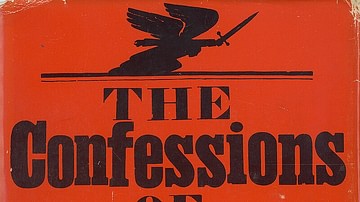Search
Did you mean: Jacob?
Search Results

Definition
Alchemy
Alchemy is an ancient practice aimed at recreating precious substances using recipes and transformative materials such as the philosopher's stone. Alchemists believed that materials like gold, silver, gems, and purple dye could be recreated...

Definition
Robert Boyle
Robert Boyle (1627-1691) was an Anglo-Irish chemist, physicist, and experimental philosopher. Boyle was a prolific author, made significant experiments with air pumps, and presented the first litmus test. A founding member of the Royal Society...

Definition
Middle and Southern English Colonies
The establishment of the Middle and Southern English Colonies of North America was encouraged by the earlier English settlements of Jamestown Colony of Virginia in the south (founded 1607) and Plymouth Colony and, especially, Massachusetts...

Definition
Anglo-Powhatan Wars
The Anglo-Powhatan Wars were a series of conflicts between the English colonists of Virginia and the indigenous people of the Powhatan Confederacy between 1610-1646 CE. The Powhatan Confederacy (of over 30 tribes) was led by the chief Wahunsenacah...

Article
Ten Great Slave Revolts in Colonial America and the United States
There were 250-311 slave revolts in Colonial America and the United States between c. 1663 and c. 1860 as defined by scholar Herbert Aptheker (l. 1915-2003), but, almost certainly, many more that were not reported, as news of an uprising...

Article
Rationing in Wartime Britain
Rationing of food, clothing, petrol, and other essential items was introduced in Britain during the Second World War (1939-45) when the country's imports were severely threatened by German U-boat attacks on merchant shipping in the Atlantic...

Article
Virginia Slave Laws and Development of Colonial American Slavery
Racialized chattel slavery developed in the English colonies of North America between 1640-1660 and was fully institutionalized by 1700. Although slavery was practiced in the New England and Middle colonies, and Massachusetts Bay Colony passed...

Image
The Scientific Revolution in Europe
The Scientific Revolution in Europe, roughly 1500 to 1700, was a profound intellectual and cultural transformation that forever altered humanity's understanding of the natural world. The period witnessed a seismic shift from medieval beliefs...

Image
Frontispiece to Sylva Sylvarum
The frontispiece to Sylva sylvarum by Sir Francis Bacon (1561-1626), published posthumously in 1627.

Image
Cover of the 1967 Novel The Confessions of Nat Turner by William Styron
Cover of the 1967 novel The Confessions of Nat Turner by William Styron based on the 1831 Confessions of Nat Turner by T. R. Gray. Designed by Paul Bacon.